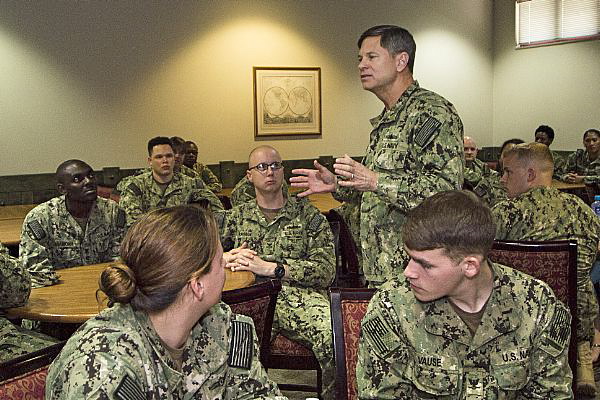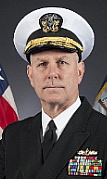Daily Business Report-July 20, 2015
Legal Battle Between UC San Diego and USC
Could Slow Alzheimer’s Research Progress
Associated Press
One university’s effort to poach a star faculty member at another Southern California university has devolved into a legal battle that some fear may impede Alzheimer’s disease research.
UC San Diego, has filed a lawsuit over last month’s defection of Alzheimer’s disease expert Paul Aisen and other employees to the University of Southern California, which has worked to bolster its reputation in medicine and sciences and has offered lucrative compensation packages to public university faculty.
UC San Diego alleges that USC, Aisen and eight colleagues conspired to take $100 million in federal and private funding, and research data involving more than 1,000 patients to USC’s new Alzheimer’s study center, The Los Angeles Times reported.
Aisen and USC deny wrongdoing. They say UC San Diego is trying to limit their ability to change jobs and is threatening the data’s security.
A Superior Court judge in San Diego last week denied USC’s request to block UC San Diego’s access to the data.
Aisen has headed the Alzheimer’s Disease Cooperative Study since 2007 and is running a clinical trial to determine if a drug developed by Eli Lilly and Co. can slow or prevent Alzheimer’s in people who do not yet have memory problems.
Maria Carrillo, chief science officer for the international nonprofit Alzheimer’s Association, said if the legal dispute isn’t settled quickly it could “slow progress down and maybe even interrupt” the clinical trial and related studies. The charity recently awarded a four-year, $8 million grant for a Harvard-based study linked to the work at UC San Diego.
Carrillo said the association wants “a speedy resolution” of the lawsuit to keep research on track.
Illumina Joins Canada’s
National Access Project

San Diego-based Illumina has joined Canada’s National Access Project consortium.
Illumina’s technology will be used to sequence DNA collected through the project, which is managed by the Personalized Medicine Initiative. Testing for the project is being carried out by Vancouver, British Columbia-based molecular diagnostics firm Contextual Genomics.
The National Access Project’s goal is to make genomic testing a standard in cancer care and to enable a personalized medicine approach to treating the disease.
Through the project about 2,000 patients will receive a 90-mutation cancer genomic test for free. The first phase of the project is currently underway and is retrospectively mapping tumors to identify mutations for about 500 patients. Each identified mutation is actionable with current therapies or therapies in Phase III studies.
In the second phase, the project will be expanded to include about 1,500 patients to prospectively evaluate and match specific tumor types with about 40 therapy options.
Funding and technical assistance for the project is being provided by Illumina, AstraZeneca, Pfizer, Sanofi, and others.
Konica Minolta Acquires
Hershey Technologies
Konica Minolta Business Solutions U.S.A. Inc. of New Jersey has acquired the assets of Hershey Technologies of San Diego, giving Konica Minolta customers access to a broader range of products.
The acquisition brings Hershey Technologies’ staff of skilled professionals to Konica Minolta’s workforce, expanding its talent pool to more than 8,000 employees.
Ninth Littoral Combat Ship
Launched, Headed to San Diego
Times of San Diego
The future USS Little Rock, the Navy’s ninth littoral combat ship, was christened and launched in Wisconsin Saturday, and will ultimately be based in San Diego.
The Lockheed Martin-led industry team launched the vessel into into the Menominee River at the Marinette Marine Corp.shipyard near Green Bay on Lake Michigan.
The ship’s sponsor, Janee Bonner, christened Little Rock with the traditional smashing of a champagne bottle across the ship’s bow just prior to the launch. Secretary of the Navy Ray Mabus, who served as an officer aboard the earlier cruiser USS Little Rock, presented the keynote address.
Following christening and launch, Little Rock will continue to undergo outfitting and testing before delivery to the Navy later this year.
The Little Rock is one of seven littoral combat ships under construction at Marinette Marine, which has built more than 1,300 ships for the Navy.
Fast, agile and mission-focused, littoral combat ships are designed to operate in near-shore environments. The Navy is building 52 in two variants.

USS Carl Vinson Gets New Commander
City News Service
The San Diego-based Carl Vinson Carrier Strike Group received a new commander Friday, as its former leader departed to take the helm of surfaces forces in the Atlantic, according to the Navy.

The new boss of Carrier Strike Group 1 is Rear Adm. James Loeblein, who had been the deputy commander of the Fifth Fleet in the Middle East. He succeeds Rear Adm. Christopher Grady.
Grady oversaw more than 12,300 aircraft sorties, including 2,382 combat missions that dropped more than a half-a-million pounds of ordnance in the fight against the self-proclaimed Islamic State during the group’s last deployment, according to the Navy. He led CSG 1 for about a year and a half.
“It was an honor working with this group of devoted men and women,” Grady said. “Their skill, dedication, and courage throughout our combat deployment allowed us to meet and exceed our operational objectives. The quality of personnel in this strike group is eye-watering, and I was humbled to lead them.”
CSG 1 is led by the aircraft carrier USS Carl Vinson and also includes the guided-missile cruiser USS Bunker Hill, vessels in Destroyer Squadron 1 and Carrier Air Wing 17.
Sorrento Therapeutics Executive to
Leave Post to Lead Startup Company
George Uy, executive vice president and chief commercial officer of Sorrento Therapeutics Inc., a clinical oncology company developing cancer treatments, will leave the company at the end of July to join a startup company as chief executive officer, the company announced.
Uy was the chief commercial officer of IgDraSol Inc., a private company that became a wholly-owned subsidiary of Sorrento in 2013.
Uy will continue to provide strategic advice to the company as a consultant beginning Aug. 1 “We regret George’s departure, but wish him the best in his position as CEO of a new venture,” said Henry Ji, president and chief executive officer at Sorrento.
Local Researchers Join Science
Advisory Board of Arivale
Larry Smarr of UC San Diego and Eric Topol of Scripps Research Institute have joined the scientific advisory board of Systems Biology spinout Arivale.
Other members of the board are: Lee Hood and Nathan Price of ISB, Frances Arnold of the California Institute of Technology, George Church of Harvard Medical School, Robert Green of Brigham and Women’s Hospital and Harvard Medical School, Jim Heath of the California Institute of Technology, Ed Lazowska of the University of Washington and Bonnie Spring of Northwestern University.



